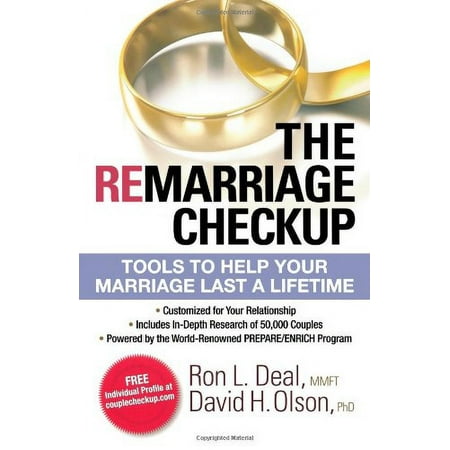Unless someone is in an abusive or destructive relationship where the perception of love is distorted by a manipulative or dishonest spouse, the only person who can decide when it's time to "call it quits" is one or both spouses in that relationship.
This means that for someone to tell you to stay or leave would be a great disservice to you. The only person who can take responsibility for your happiness is "you". In fact, even if someone guaranteed their decision is right for you, it's simply not their decision to make. It's not their happiness, success, misery or failure. Only you can claim that. Only you should make the decisions that cause it.
You should own it
Until you discover your strength to end something or work harder to keep it, you'll always feel victimized by any decision you or your spouse didn't make. Furthermore, you won't own the decision and ability to overcome future obstacles.
When you know you made a decision on your own, you have a vested interest in it succeeding. When it succeeds, it provides confidence to continue to make decisions and control your own destiny.
When your decisions lead to failure, you have an opportunity to learn. When it's a decision that you put a great deal of thought and consideration into, you can more easily examine why your decision didn't produce a positive result.
How DMK can help you decide on your own
We can offer some aspects of each scenario of the "too good, too bad" problem. It's basically a problem where the will of the heart is stronger than the mind or vice versa.
Is your love stronger than your spouse's dark side?
Essentially your heart tells you one thing and your mind something else. In either case, your situation may include all three issues, but one will stand out as your primary problem.
Your problem that leads to your query (Should I stay or should I go?) is that:
- your comfortable, but with insignificant feelings towards your spouse (scenario 1)
- his/her good qualities are greater than your absent love (scenario 2)
- your love for this individual is greater than his/her overall bad qualities (scenario 3)
Regardless which it is, most often at least one of these reasons keeps you in the relationship. Otherwise, you would leave.
Examples of the “too good, too bad” problem
Scenario 1. Friends first
If your spouse is a wonderful person and provides in many ways as a good spouse, but you simply don't have feelings of love the way you expect, then you may have a great friendship with a wonderful person. This marriage can endure great hardship. This relationship can likely endure as much or more than two people who are madly in-love with one another. This is because you're thinking with your head instead of your heart. Your friendship is rational and committed. You likely have reasonable communication skills and a great deal of respect for each other's well-being. While your relationship is functional and often enjoyable you lack passion and perhaps true love.
Often this relationship can lead to an apathetic marriage. You may have feelings for your spouse’s happiness, you may even love your spouse, but are not in love with him/her.
Scenario 2. Good spouse, no love
Does your spouse do most of the right things by your marriage, but you feel negative towards him/her? Do you no longer look at him/her and think how lucky you are that you two married? Do you think of other people in a romantic way? Sometimes these may be signs that despite your spouse's faithful and dutiful behavior (making it hard to leave), your heart just isn't in it. This may be the most difficult of all three scenarios. While divorce may be on your mind, know that it's an extremely complicated journey that, when complete, may not be what you expect.
Scenario 3. Lovers, love and little else
If you feel a great passion and love for your spouse but he/she demonstrates poor qualities regarding issues like finance, communication and/or honesty then you may have a great love affair instead of a great marriage. This relationship can produce the greatest love of your life. The passion is in every aspect of the relationship to include sex, feelings for one another, arguments and strengths. You enjoy time with your spouse and share many of the same interests and qualities (good and bad). Your love for each other may be your greatest life achievement with little in comparison. While you may feel you love each other a great deal, either of you may be co-dependent, making it an individual problem as well as marital. Usually, there are many on-going disagreements and the turbulence. The marriage is usually considered dysfunctional.
While you may relate to each scenario, usually one represents the larger problem in your marriage.
Also, know that while you may relate more to one scenario, your spouse may relate to the other.
Before taking the next step, consider this...
Maybe it's your dark side?
First, is it you? Many times we are dissatisfied with our marriage when we are dissatisfied with ourselves and/or our life. A divorce will not make this problem go away for obvious reasons. However, it will finally be clear that the problem was more than your spouse and in that way you will finally be able to deal with your problems before they destroy another relationship and/or your life.
Is it fixable?
Second, can it be fixed? If the problem is based on personality traits that are satisfying to the offending person more than his/her commitment to the marriage, then it's unlikely he/she will change without resentful feelings. If changes are made, the resentment may replace the dissatisfying qualities preventing your happiness and an improved marriage.
If it's scenario 1 or 2
If your marriage is good but lacking in some way, one solution is to get to know your spouse again. Spend more quality time with each other outside of the daily stuff that can eventually damage a relationship despite a functional marriage. This time with your spouse will help both of you redevelop lost feelings and should provide reasons to rekindle passion, friendship and respect for each other.
Be honest with your spouse. Don't threaten to leave or demand changes. Instead, let him/her know that you feel the marriage is threatened and you're willing to do what it takes to make it work.
Ask your spouse how he/she feels about your relationship. Take the DMK Marriage Essentials test, to improve your communication with each other and start reconnecting.
Once you discover what's missing, don't make all your time together talking about your problems, make the time about improving upon areas that need attention. The DMK Marriage Essentials Test will help identify those areas.
Don't give up too soon or fail to enlist the help of a marriage counselor. Sometimes individual counseling helps too (for either or both spouses).
If after a reasonable reconnection period your feelings remain the same, you'll need to decide if the relationship hinders your personal happiness enough to leave or if it's satisfying enough to stay.
If it's scenario 3
This relationship is often between two passionate-strong willed individuals. Sometimes these relationships are between spouses who married young or met while married to other people. It may also be inclusive of couples who have been married for three years or less.
The marriage absolutely can be saved, but without intervention is headed for eventual failure. The DMK Marriage Essentials Test can help pinpoint areas of contention in the marriage. It can start a dialogue and give each spouse an opportunity to discover the differences that may lead to arguments.
This provides spouses who feel strong emotions and love for one another an opportunity to improve the functionality of their marriage.
This type of relationship usually benefits a great deal from marriage counseling. Counseling increases a dialogue and provides professional therapy based on the couple's unique circumstances. Group counseling is also a great idea. Together, they meet other married couples with similar problems as their own. Sometimes hearing a similar marital problem, but through the discussion of another couple can help one or both spouses better understand their own marriage.
Should you change?
You can ask your spouse to make changes with you to help the marriage. Essentially, the only person you can change is yourself. You can't make your spouse change or take responsibility for his/her actions.
To work on the marriage, both spouses should be vested in making individual commitments to improving their relationship in order to achieve personal happiness and marriage satisfaction.
If your spouse values your relationship more than his/her damaging qualities, then it may be a marriage worth saving with the assistance of counseling or therapy. It may also be an issue where your spouse was unaware of these behaviors or actions that were causing a rift in your marriage.
Is it worth divorcing over?
Some questions to consider here...
- Though children are incredibly resilient, will the breakup cause a great deal of pain for the family that causes more problems than the one you are considering divorcing over?
- Do you understand the complexities surrounding divorce to include: money, housing, life changes, possible depression, family, etc.?
- Do you want the best life you can live?
- Do you feel what you're missing is worth working harder to achieve with or without your spouse? Is it worth the wait?
- Are you confident that a divorce would provide an opportunity to achieve what you're currently missing?
- Are you willing to determine your personal qualities and faults (get to know yourself), if divorced before you enter into a new relationship in order to avoid being part of the statistics of a 67% divorce rate for second marriages?
- Is your spouse worth changing yourself?
- Do you respect your marriage more or less than yourself?
- Can more self-respect help your marriage or provide more happiness for you by getting divorced?
- Can a greater understanding or respect for your spouse provide a healthier marriage and better life?
While these are pretty many questions and have likely been looming in your mind already, you should consider them before you do anything that could impact your future. Again, speaking to a counselor or family therapist independently can help you feel empowered to make the right decisions.
Finally, can missing half of anything be considered a success? If you spend your whole life missing half of what you need in a marriage, then it's seriously possible you will have regrets at the end. But, let it be said, personal happiness is not a result of perfection. To expect 100% happiness and satisfaction would be grossly inaccurate especially in marriage.
Marriage is an everyday relationship that's obviously filled with good and bad. Marital satisfaction isn't like you see in the movies. But, it can provide a wonderful, lasting relationship with someone that will never be comparable to anyone else. So, before you proceed, fully examine what you're missing. Sometimes, it's YOU.
Then you need to determine if that's something you think you'll find if you choose to divorce or if you're more likely to fulfill your happiness with your spouse.
Regardless, in order to avoid regret at a later point in your life, you need positive change right now. That change starts with you. The longer you wait, the more your relationship will continue to move in the wrong direction. So. Let's get started with one question.
What can you do today to make you happier?
Disclaimer
The information provided by respective owner's ("we", "us" or "our) on Divorce Me Knot (referenced also as "DivorceMeKnot.com", "dmk", "DMK", "OurDMK.com", "OurDMK", "application" or "site") is for general informational purposes only and is subject to change with or without notice. All information on our site and application is provided in good faith, however we make no representation, guarantee or warranty of any kind, express or implied, regarding the accuracy, validity, adequacy, reliability, availability or completeness of any information on the site or application.
The information in articles and all content on this site should not be considered psychological or behavioral health therapy, counseling or legal, financial, real estate, mortgage, insurance or professional advice. It should not be used in place of professional advice from a counselor, therapist, physician, behavioral health professional, legal, real estate, mortgage, insurance, financial advisor or other licensed professional or credentialed expert in related subject matters. Providers of content on this site, herein known as "Contributors" (inclusive of, but not limited to writers, bloggers, editors, employees, developers, graphic designers, advertisers, partners, affiliates, references, experts, professionals and site owners) are not legally liable for any misinformation, errors or omissions.
Under no circumstances should DMK and/or it's Contributors have any liability to users of the site for any loss or damage incurred to users as a result of the use of this site or application or reliance of any information provided on the site or application. Use of the site or application and reliance on any information from the site or application is solely at the user's own risk.
For complete site disclaimers review "Disclaimers" on this site or click the link below.










 How to resolve AdBlock issue?
How to resolve AdBlock issue?